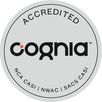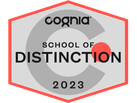IDEAVENTIONS ACADEMY
 We have a guest blogger today, Ryan Heitz, who has experienced the type of education I think of when I think of Earth Science. While I have only heard about scientific field work, he has had the opportunity to perform field work at the Chesapeake Bay, the Brazilian Rainforest and in the Marshall Islands. “As we will be announcing the Academy Earth Science teacher this Friday, Earth Science is an apropos topic for today’s Teaching Tuesday post. Our Earth Science education philosophy has it roots in my passion for environmental sciences. Influenced at a young age by Dr. Fornshell at Thomas Jefferson High School for Science and Technology, and then expanded when I studied in the Department of Environmental Sciences at the University of Virginia, the philosophy features three main focuses: scientific depth, hands-on, integrated curriculum, and field studies Earth science by its very nature is an integrative field as it requires you to learn and understand some chemistry, physics or biology as you study various processes and phenomena. Further, you must apply math, engineering and computer science as you strive to design experiments and analyze data sets. Finally, there is strong connection to nature - the world around you - that provides an ultimate incentive to study the field as it is easy to see, touch, smell, and hear it. It can include studying various local ecosystems in person (e.g. forests, wetlands), making measurements of the atmosphere by developing and using meteorological instruments, and exploring oceanography in the Chesapeake Bay aboard a ship. We were in luck as we were researching a curriculum because we’ve found one that is nearly all that we could want, when combined with field studies and additional hands-on experiments. The curriculum that we are using for our Earth Science courses is by JASON Learning. This is what we like about the JASON curricula:
Earth and Space Science is the study of geology, the atmosphere, oceanography, ecology, astronomy and planetary science. Therefore, in order to give the subject its due, it required a multi-year curriculum. We like that the JASON curricula provide a solid foundation to the study of Earth Science and is both multi-faceted and integrated plan of study. Going beyond JASON, the areas we need to expand upon to give us the level of depth and immersion that we are looking for at the Academy include, Exploration, Field Work and Planetary Science. Exploration: We believe that all of our students should appreciate how exploration is key to science. In many instances the study of science is so focused on the scientific method and answering a pre-defined question (repeating an experiment designed and selected by someone else) that we lose the freedom to explore and to truly be curious. This freedom to explore is what allows us to formulate those questions. Field Work: Of the different sciences, Earth Science provides the most and easiest opportunities for field studies. We can go explore riparian habitats by visiting a local river, but we can’t exactly get inside a cell. Local, regional, and national resources are abundant. Locally, Walker Nature Center is located within a five-minute drive from the school, and we plan to spend a fair number of ecology class periods outdoors at the nature center, or when we study oceanography become oceanographers studying marine science with Living Classrooms. Space Science: At the end of our studies of the Earth, we go to space and learn how our planet is part of a broader universe. We’ll explore a spectrum of topics in astronomy to include our solar system, galaxy formation, planetary geology, and instruments. We’ll include telescope nights to turn our eyes to the skies. Between JASON, exploration, planetary and space science and field work, I can’t be more excited about a class! Ms. Jessie might just find a slightly older 4th-5th grader sneaking into her class.”
0 Comments
Your comment will be posted after it is approved.
Leave a Reply. |
AuthorJuliana Heitz is co-founder of Ideaventions Academy and is very excited to share the thinking behind the Academy. Archives
October 2023
Categories |
Copyright © 2010-2024| 12340 Pinecrest Road, Reston, Virginia 20191 | 703-860-0211 | [email protected] | Tax ID 27-2420631 | CEEB Code 470033
 RSS Feed
RSS Feed




